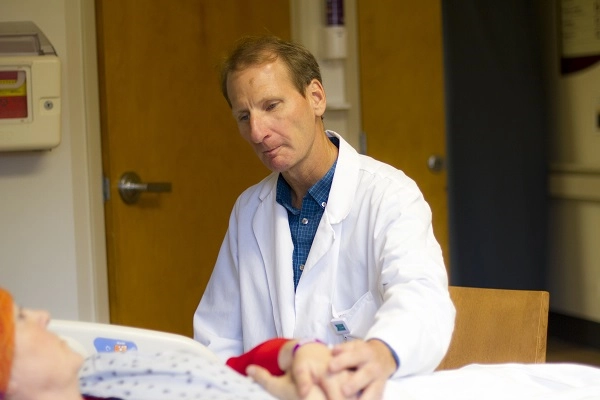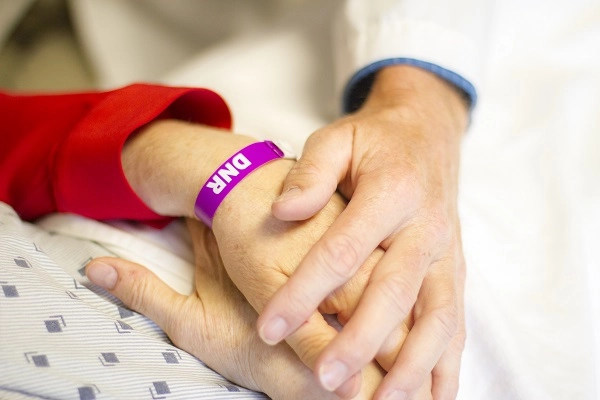No one will ever die at Salem Health without a companion at their bedside, thanks to a new group of volunteers who stay with patients until they take their last breath.

No one will ever die at Salem Health without a companion at their bedside, thanks to a new group of volunteers who stay with patients until they take their last breath.
No One Dies Alone is part of a national program that began at Sacred Heart Hospital in Eugene in 2001. Volunteers — called compassionate companions — are on call to sit with patients who are within 48 to 72 hours of dying, and would like someone with them.
“The loving hands of our labor and delivery people welcome new life at one end of our campus; it’s only fitting that we offer a compassionate hand on the other side as people face death,” said Jack Schwarte, a longtime Salem Health oncology nurse who now volunteers for NODA.
Serving is a privilege
Schwarte and his wife (and fellow nurse) Laurie Garrett are among the dozen people recently trained for NODA. They met as oncology nurses at Salem Health and share a passion for helping patients. “The training was inspiring,” Schwarte said. “It’s a privilege to be present when someone dies.”
“One of our greatest fears in life is dying alone,” said Ken Morse, Salem Health’s lead chaplain and NODA instructor. He and health educator Nancy Baldwin hope to train 80 volunteers by next year.
Dying with comfort and dignity
Companions help dying patients in many ways, from reading to them, praying with them, playing their favorite music, holding their hand, or just sitting quietly. “It’s all about what they want,” Schwarte said. “We’ll do just about anything.”
People may assume the typical scenario involves a homeless or friendless person who ends up dying in the hospital, but the need is much greater than that.
“Patients often have family or friends near — but everyone faces death differently,” Schwarte said. “Some people choose not to be with their loved one at the time of death because it’s too painful. We respect that and will offer our presence to the very end, which gives the family comfort.”
Or, sometimes a loved one from far away simply can’t get there in time. Compassionate companions are on call to come promptly in those cases, too.
Care to join NODA?
Medical skills aren’t needed — just compassion, plus the ability to be on call and to have time to sit with patients for two hours at a time.
More volunteers are needed. To learn more about NODA, attend an hourlong orientation on Thursday, July 7, at 5:30 p.m. at Salem Health’s Community Health Education Center. Training involves just three two-hour sessions on July 14, 21 and 28 at 5:30 p.m.
Contact Nancy Baldwin at the CHEC at 503-814-1582 to learn more and sign up.
